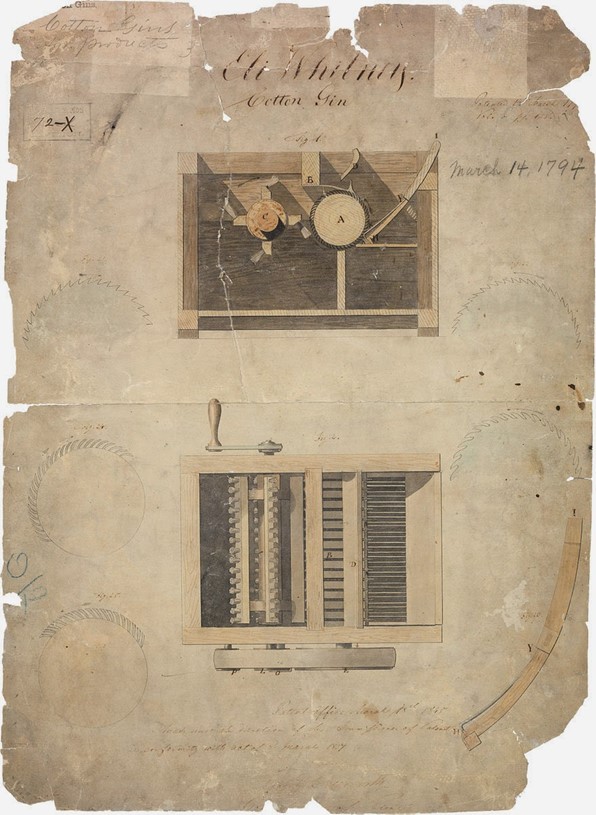Graduation Time!
My daughter graduated from law school last weekend. She has a job lined up with a family law practice in Phoenix, so she’ll be taking the bar exam later this summer out west. My wife and I are proud of her academic accomplishments and the hard work that she put into it. Hard work was a key commencement message from Professor Don Cochran, who recently returned to Belmont Law after serving as a U.S Attorney under President Trump. Professor Cochran also encouraged graduates to take risks early in their law career. Don’t play it safe by rejecting difficult cases. Compared to my experiece with their peer group, these graduates would do well to act on Prof. Cochran’s advice.
A Lesson from History
230 years ago, a new Yale Law graduate applied the principles of risk taking and hard work to build his career. Oddly though this young lawyer found fame (and notoriety) not from practicing law but from an invention that we all learned about in middle school history class. After he graduated from Yale, he moved to Savannah to accept a work invite from Catherine Greene, widow of Revolutionary War General, Nathanael Greene. Just two years after graduating law school, a young Eli Whitney earned a patent for a “cotton engine” that made harvesting short staple southern cotton easier. He eventually shortened the name of his invention to “cotton gin”. In a letter that Eli wrote to his dad, he said, “One man and a horse will do more than fifty men with the old machines…Tis generally said by those who know anything about it, that I shall make a Fortune by it.”
Whitney’s invention was a massively disruptive moment in the American economy. Southern farmers grew and harvested cotton using slave labor and the cotton gin’s success allowed farmers to grow even larger crops which required more slave labor. By 1850, the US grew three-quarters of the world’s supply of cotton.

Figure 1 – Eli Whitney’s cotton gin patent drawing
Cotton Gin 2.0
Like the cotton gin’s economic impact on the US economy in the 1800’s, my daughter’s law career will be impacted by one of the most disruptive innovations that I have seen – Artificial Intelligence. The latest version of ChatGPT-4, a popular AI tool passed the Bar Exam. ChatGPT is an instance of something called a Large Language Model (LLM) AI. These LLM AI engines are developing into usable tools at incredible speed. While far from a polished, reliable product, ChatGPT accelerates thousands of knowledge-based tasks with minimal effort from users (no, if you’re wondering, I did not use AI to write this). Audio AI tools have been trained by using popular rap artists’ songs to create an entirely original performance in the style of that artist. Other Generative AI engines can create incredibly detailed original artwork from simple text prompts.
Elon Musk and other industry leaders are sounding alarms over the widespread development and breakneck pace of Generative LLM AI. The fears are real. Record companies are labeling AI music as “fake music”. Schools have no idea how to sniff out a class assignment that was created in an LLM AI. Soon, no one will need to learn Adobe Photoshop because Adobe’s AI will paint what you ask for with details that you can’t even imagine.
From Slavery to Guns
As disruptive as Whitney’s cotton gin was in the 1800’s, it wasn’t what made his fortune. Patent lawsuits kept Whitney from reaping an economic windfall from the gin and by the time those issues were settled, knock-offs of his design were commonplace. Eli is also known as the father of the mass production paradigm. Fearing war with France, the U.S. Government awarded Whitney a contract to make firearms. Channeling Elon Musk’s ingenuity, Whitney learned how to use interchangeable parts to rapidly mass produce the governments muskets. A few decades later, Henry Ford would use Whitney’s manufacturing principles in developing his automobile assembly line.
Epilogue
Are we all going to become slaves to the machines when they are smarter than us? Will we become assembly line drones with no hope or control over our work or choices? How can we make money from this amazing productivity enhancement? The era of generative AI is here, now. We are a long way from machines possessing artificial general intelligence which is the future threat to focus on.
Right now, Washington is teetering towards debt defaults while debating a debt ceiling increase. Maybe we should ask ChatGPT how to raise the debt ceiling while not spending money we don’t have? If AI is going to eliminate someone’s job let’s make the politicians go first!
